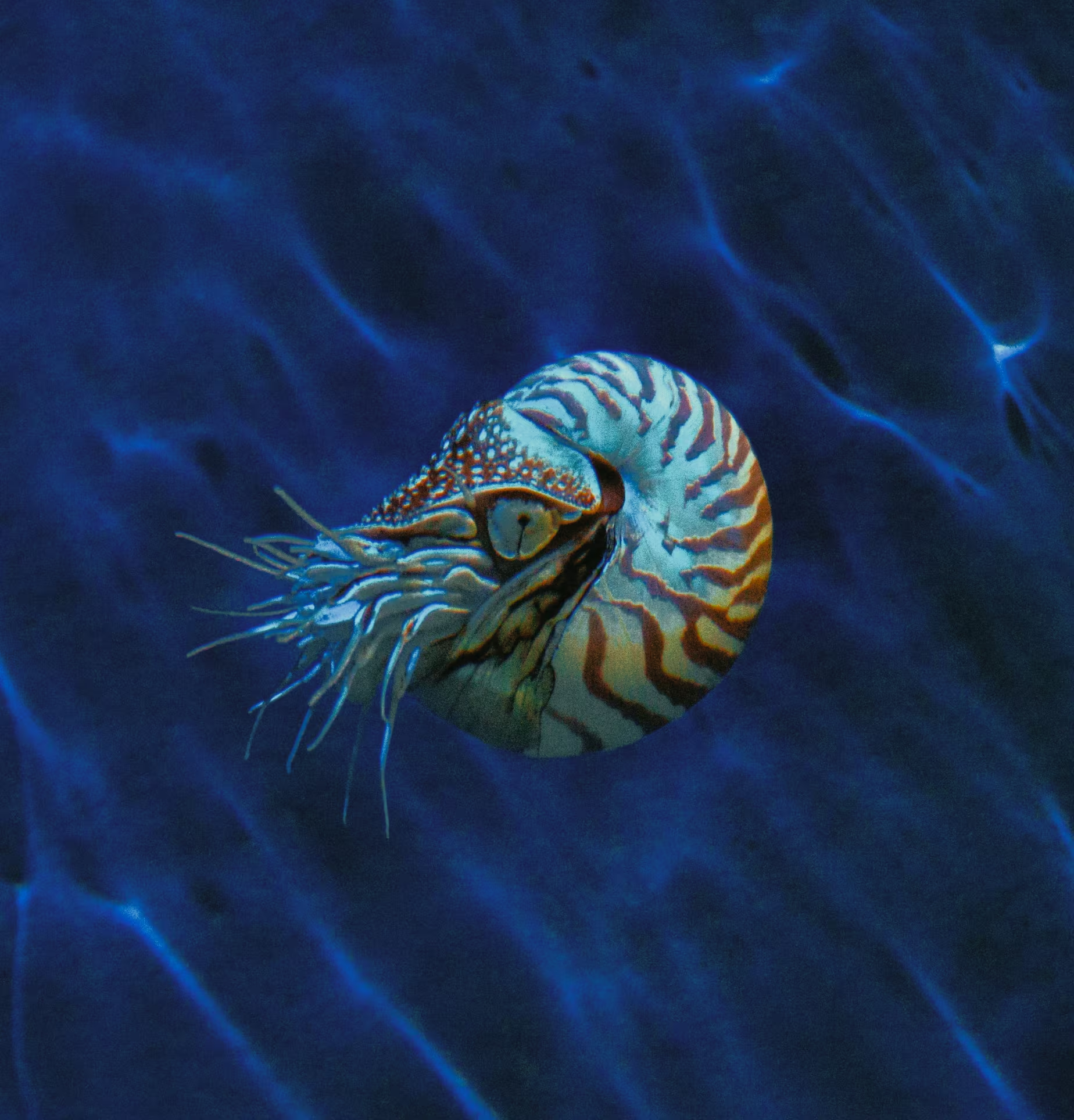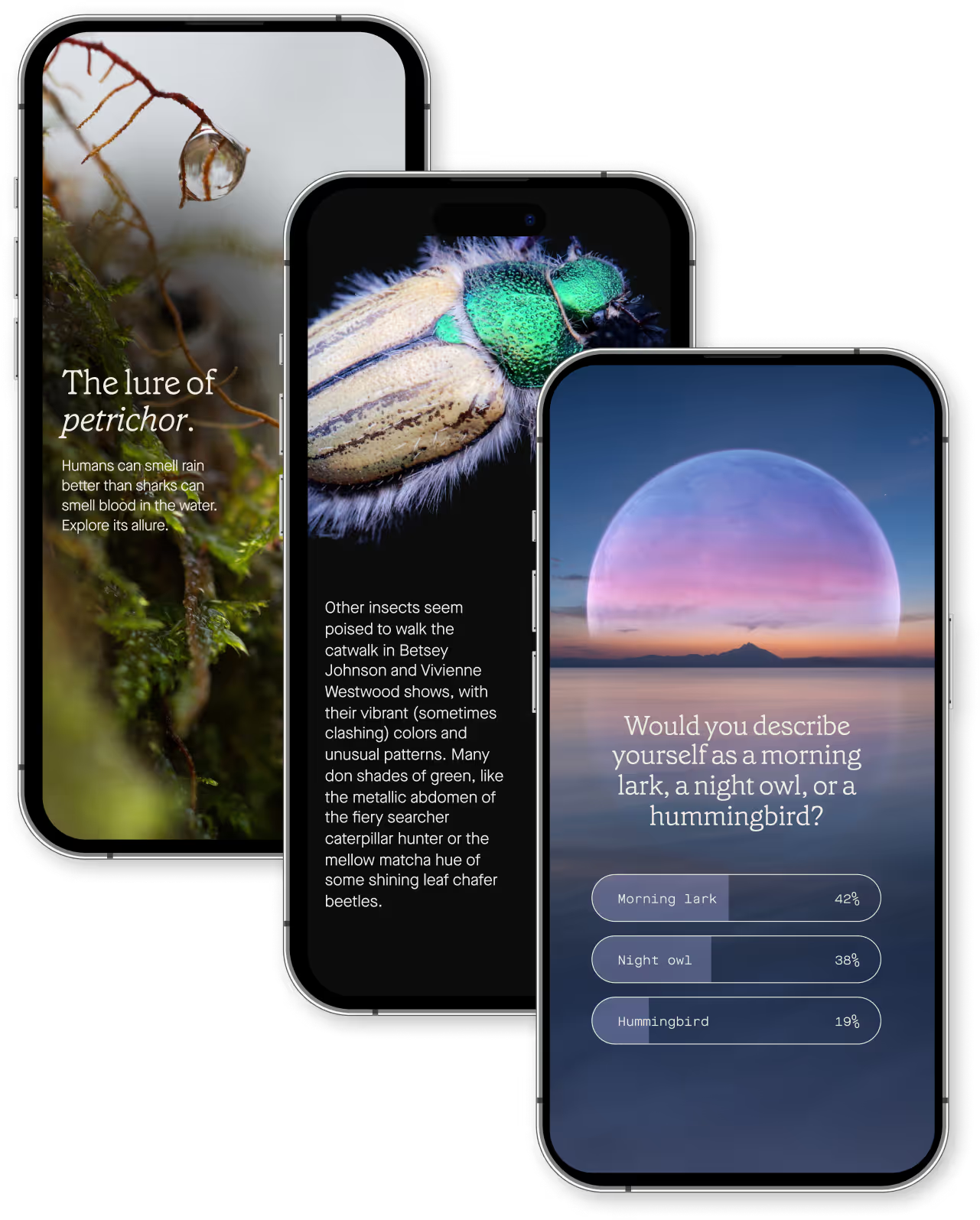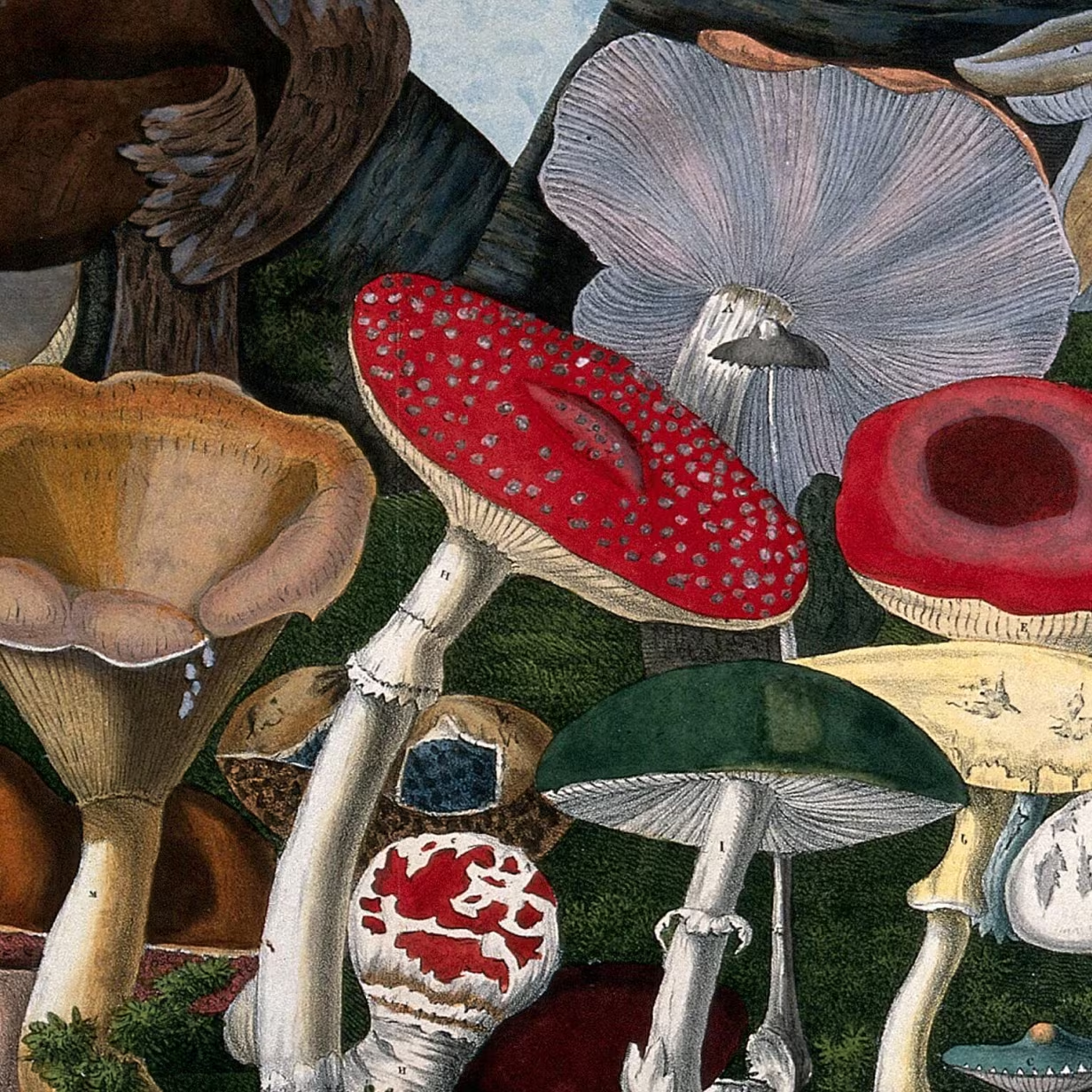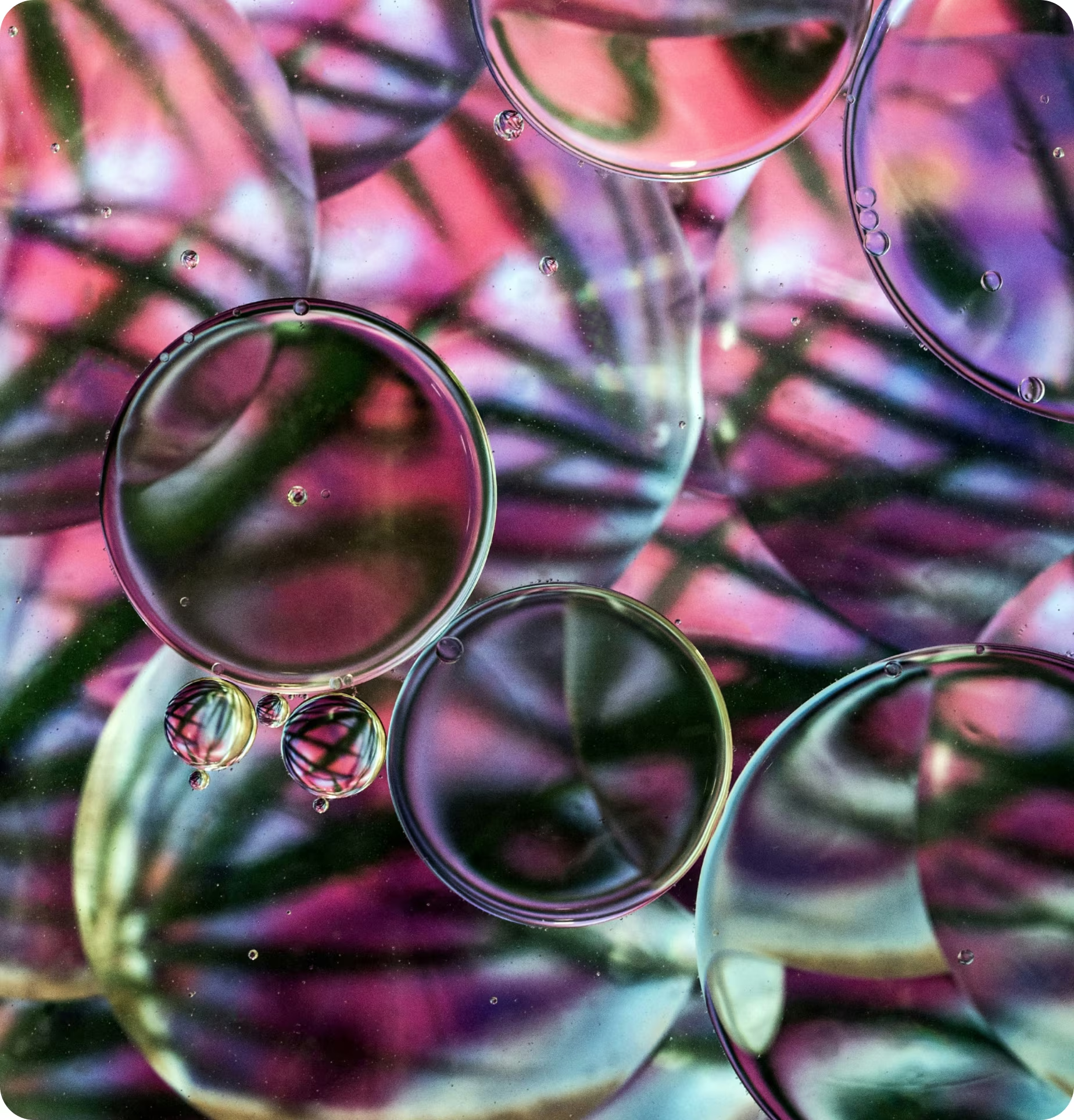
The Curious Cephalopod
Learn about the quirky class of animals called cephalopods—marine-dwellers with evolutionary origins that predate the dinosaurs.
Key Takeaways:
- Cephalopods can camouflage, solve puzzles, and even show personality. Reflect on what makes these creatures so remarkable.
- From jet-propelled squid to light-show cuttlefish, cephalopods reveal strange forms of intelligence beneath the sea.
- Octopuses open jars, throw objects, and squirt water at researchers. Consider what their smarts mean for us.
- Ancient and alien, cephalopods live fast and die young. Explore how their unique biology supports intelligence.
- A cuttlefish hypnotizes prey with light; an octopus navigates a maze. Discover the surprising minds of the deep.
- With nerve clusters spread throughout their bodies, cephalopods think differently. Reflect on intelligence beyond the human brain.
Imagine that, for whatever reason, you had somehow gone through your life without ever hearing of an octopus. Then I drew one and told you it could use tools, squirt ink, and camouflage like an iguana. You’d probably think I was letting my imagination run away with me.
Octopuses are an example of a quirky class of animals called cephalopods, a group we often describe as creatures in the deep sea. These are all marine-dwellers with evolutionary origins that predate the dinosaurs, and with one exception (Nautiluses), all have a sack filled with ink they can release to confuse predators. The “ink” is actually almost all melanin, the same kind of pigment that makes some humans’ skin darker than others. There are four types of cephalopods:1
1: Octopus
The eight-armed octopus is the most famous cephalopod. An octopus’ ability to camouflage looks straight out of science fiction – they don’t merely change color; their skin can display spots, stripes, or whatever shapes they need to blend into coral. Most octopuses grow to around 4 to 6 feet across but some giant octopuses have grown as large as 30 feet. Octopuses are famously smart, which we’ll talk about in a minute.
2: Squid
A squid is not an octopus. They both have eight arms, but squid are easy to recognize because they have giant missile-shaped heads. That missile head is all about speed – squid suck water into a muscle-lined pocket in their head called a mantle, then shoot it out at high speed as a kind of jet propulsion. Squid can shoot water up to 25 miles per hour!
3: Cuttlefish
Winning the award for Most Psychedelic Sea Creature, cuttlefish have one of the more unique hunting techniques in the animal kingdom. When they see a shrimp or something else tasty, they’ll position themselves where the prey can see them. Then their skin will illuminate into a pulsating display of lights straight out of a Pink Floyd show. The shrimp stares, mesmerized by the bizarre light, until the cuttlefish drifts forward and gobbles it up.
4: Nautilus
Even if you’re an avid scuba diver, you’ll probably never meet a wild Nautilus, the last type of cephalopod. They hang out about 2,000 feet deep in the ocean during the day, and only come up near the surface for hunting at night. Nautiluses don’t have the same squishy look as do other cephalopods; they look more like bugs with dozens of slender limbs sticking out of a hard shell. Think of the fossilized spiral sea creatures you might see on display in a natural history museum, except these ones are alive. That shell gives them enough protection that they don’t need the ink sack other cephalopods have.
Cephalopods follow the “live fast, die young” philosophy, most only living 1-3 years, except the Nautiluses, which can live up to 20 years.

A rarely seen cephalopod, the glass octopus (vitreledonella richardi), photographed on an expedition in the Phoenix Islands Archipelago by marine scientists with the Schmidt Ocean Institute.
Found in tropical and subtropical waters around the world, the glass octopus live primarily in the aphotic zone, or waters around 3,000 feet deep where sunlight doesn't reach. It has a nearly transparent body and grows to about 1.5 feet long. Because it only lives for 2-5 years and in difficult-to-access locations, not much is known about this luminescent creature.
Image courtesy Schmidt Ocean Institute.
The more different an animal is from humans, the harder it is for us to know if that animal is especially intelligent. With octopuses though, their cleverness has been obvious at least since the time of the ancient Romans.2 In the 20th century, scientists started studying octopuses in lab aquariums to see just how smart they really are. They can navigate underwater mazes and screw open jars. They can throw objects to hit other objects, a skill previously thought to be mostly limited to primates.3 They can solve puzzles, learning how to open progressively more complicated latches to get at a yummy crab.4 Some octopuses seem too smart (and too ornery!) for lab research:
“A 1959 paper detailed an attempt at the Naples Zoological Station to teach three octopuses to pull and release a lever in exchange for food. Albert and Bertram performed in a “reasonably consistent” manner, but one named Charles tried to drag a light suspended above the water into the tank; squirted water at anyone who approached; and prematurely ended the experiment when he broke the lever.”2
This gets at another fact the scientists couldn’t help but notice – octopuses have personalities. Some are compliant and friendly towards experimenters, completing any task they’re given. Others are aloof, ignoring all the puzzles, and even squirt water at experimenters they don’t recognize.
While octopuses are the most well-studied, they’re not the only cephalopod with smarts. The light shows that cuttlefish put on for hunting are also used to communicate with each other, though scientists aren’t yet sure what this light language is actually conveying.
What makes all this intelligent behavior especially remarkable is that cephalopods don’t have brains! Well, at least not in the same way we have brains. Instead of brains, they have clusters of nerve cells called ganglia, but in many cephalopods the ganglia are distributed throughout their body for a specific task. It’d be like if you had one little brain in your arm that knew how to throw a baseball, and another little brain in your leg that knew how to kick a soccer ball. Some cephalopods, like octopuses, have evolved so that most of their ganglia are all organized into one big mass of nerves. In this (kind of) brain-like structure, the octopus’ ganglia become more interconnected, which is what scientists think enables them to do these more complex behaviors.

Cuttlefish have a very short life span, only living one or two years. There are more than 120 distinct species of cuttlefish worldwide, ranging in size from 6 to 20" in length.In spring, a female will lay several hundred eggs which are in danger of being swept away by currents or eaten by other animals. Eggs hatch about 60 days later and grow quickly, reaching their full size as early as their first winter.Like their octopus cousins, cuttlefish are noted for their ability to change colors and textures to mimic their surroundings. That's notable considering these wonders of the sea are completely colorblind.
Image courtesy David P. Robinson / Ocean Image Bank.

Image courtesy BluePlanetArchive / Steven Kovacs.
Humans mostly relate to cephalopods by eating them, as calamari in the English-speaking world or pulpo ceviche in the Spanish-speaking world. But increasingly, people are finding that an octopus in an aquarium can be a fun and educational pet. Some divers claim that octopuses or cuttlefish can recognize them when they dive the same reef regularly. Netflix’s My Octopus Teacher tells the story of one such human/octopus bond. Watching these interactions, it can be hard to tell whether we’re observing or anthropomorphizing, attributing human-like emotions to non-humans. Is the octopus really “playing” with the human, or just crawling over an object? But, however they relate to our psychology, we can definitely relate to theirs.
References
1 "Get to know the four types of cephalopods," Birch Aquarium, November 11 2018.
2 "Alien intelligence: the extraordinary minds of octopuses and other cephalopods," The Guardian, March 28 2017.
3 "Throw objects, solve puzzles, escape closed rooms: What makes octopuses so smart?," News 18, September 24 2021.
4 "The octopus and their puzzles," New England Aquarium.
Make curiosity a daily ritual.
7 days free.

Sign up for more bites of curiosity in your inbox.
Ongoing discoveries, reflections, and app updates. Thoughtful ways to grow with us.


















.svg)


